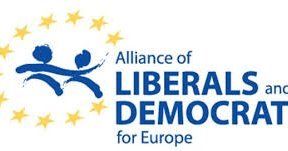A congress under the shadow of national politics
Even though speakers kept reminding the audience that the Liberals were doing well in Europe, with several Prime Ministers or deputy-Prime Ministers, seven Commissioner and recent electoral success, the current situation of national politics were present throughout the plenaries debates. Most of the delegations have to face growing influence of nationalism back home, and this Congress was for Nick Clegg an occasion to re-asses the Lib Dems’ will to fight UKIP and stand as an ‘unambiguously pro-European’ party during the upcoming elections in the UK, inviting his counterparts throughout Europe to do the same.
As the discussion over the 2014 ALDE manifesto went by, national redlines became visible, reflecting the various elements which make current national politics throughout Europe. The delegation from German FdP for instance, who recently suffered an extreme backlash in national elections received support from other liberal parties. However, the tense national situation was particularly salient when the discussion came to the Eurobond, which the FdP did not want to see in the ALDE manifesto for 2014. Similarly enough, it was quite clear that the British Lib Dems would not approve of references to rebate and other re-equilibrating budget mechanisms in the manifesto. The draft proposal made little references to Green economy and environment, and delegations had to find compromise wording over the topic. The question of own resources and the size of EU budget also created divisions among the delegations, with amendments to the manifesto passed sometimes by a dozen of votes out of several hundreds.
At the end of a hectic plenary where the electronic system of vote crashed, the manifesto was nonetheless adopted with quasi-unanimity – minus a few abstention from German FdP. Two emergency motions were also adopted: on Ukraine, pushed by the Ukrainian delegation, and one on drones, pushed by the British Lib Dems.
The ALDE, which vision for Europe?
How revealing is this manifesto of the ALDE vision for Europe? As reminded by the Chair during the plenary, the manifesto is meant to be a broad framework within which national parties can pick and choose elements for their own campaign. It is up to them to decide to go further in some areas and do less in others, adapting their manifesto to their own lines and various political context. The ALDE is an “alliance” more than a “block” and therefore it can be expected that the ALDE manifesto will be a reference document national parties will play with more than anything else.
A general feeling at the end of the Congress was that debates were marked by national concerns more than European vision. Nonetheless, it was quite clear that this Congress was also the starting point of the procedure of choice of the ALDE head of list for the European elections, and candidate for the Presidency of the Commission. Guy Verhofstadt and Olli Rehn have both already started their campaigning – making various intervention and speeches in fringe events for instance. On this point more than on any other, there is someone in the ALDE party with a strong European ambition.

Follow the comments: |
|
